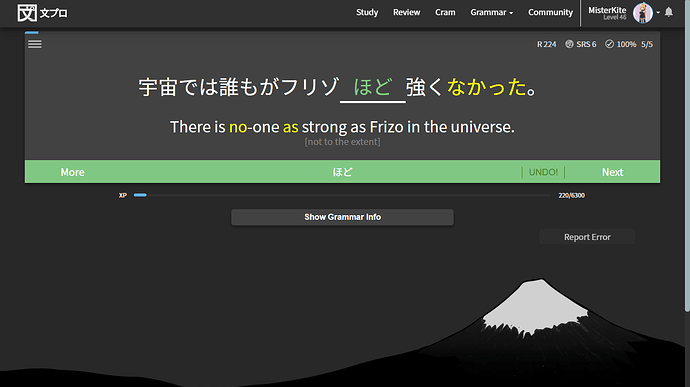I can’t really see how this is not “There was no one as strong as Frizo in the Universe”
Is there really any difference in English between “There is no one as strong as Frizo in the Universe” and “There was no one as strong as Frizo in the Universe”?
“Was” just sounds a bit more literary to me. Like the beginning of a story.
I think there is, because “There was no one as strong as Frizo in the Universe” implies that there wasn’t, but now there is, while “There is no one…” implies that he’s still the strongest.
Or if the sentence is in a story entirely written in past tense, then it does mean the same. Context is everything, and in this case not necessarily the context of the content, but the context of the syntax around it.
So both “is” and “was” is correct, but taken out of context “was” is probably better.
Misterkite is correct. They are making different truth claims. One says he was in the past one says he is currently.
Well I disagree. I think it’s contextual. Stories are often framed in the past tense, and in that situation “was” is used in the same way “is” is normally used. Hence why I said “was” sounds more literary.
Obviously “was” is the better translation for the Bunpro sentence, but that’s not the point I was trying to make.
The statement is still specifically referring to the past, regardless of the context, it’s just that if the entire story is set in the past, then the statement might be referring to the current moment in that story, which in the past, but its still in the past, not right now, so the statements are still distinctly different in there meaning.


